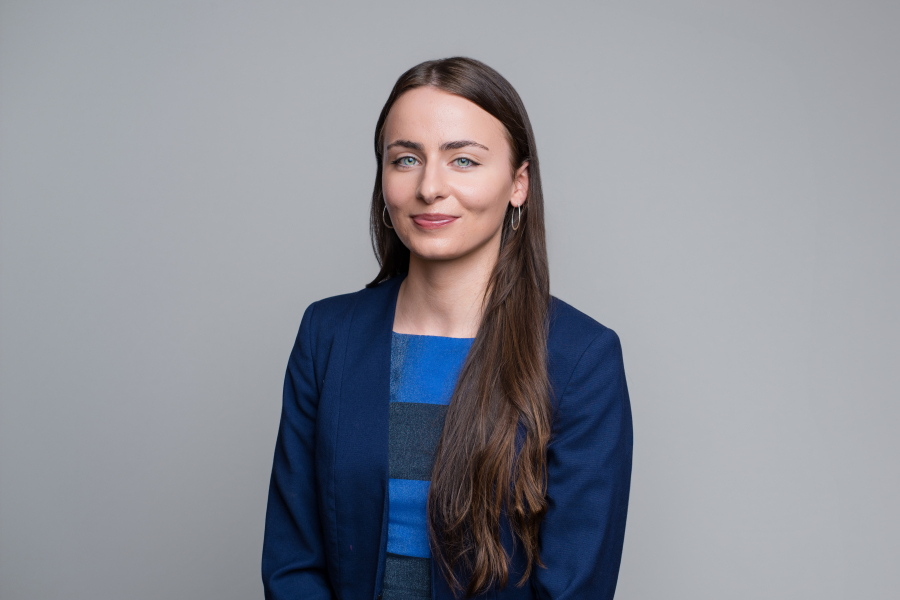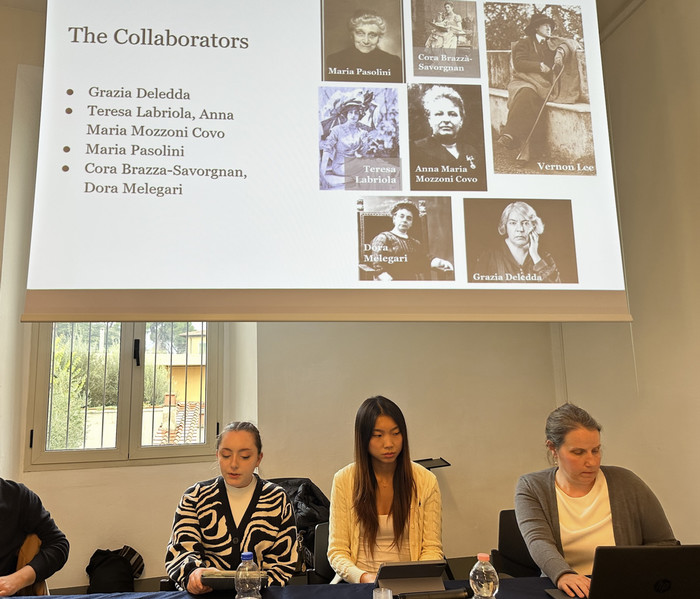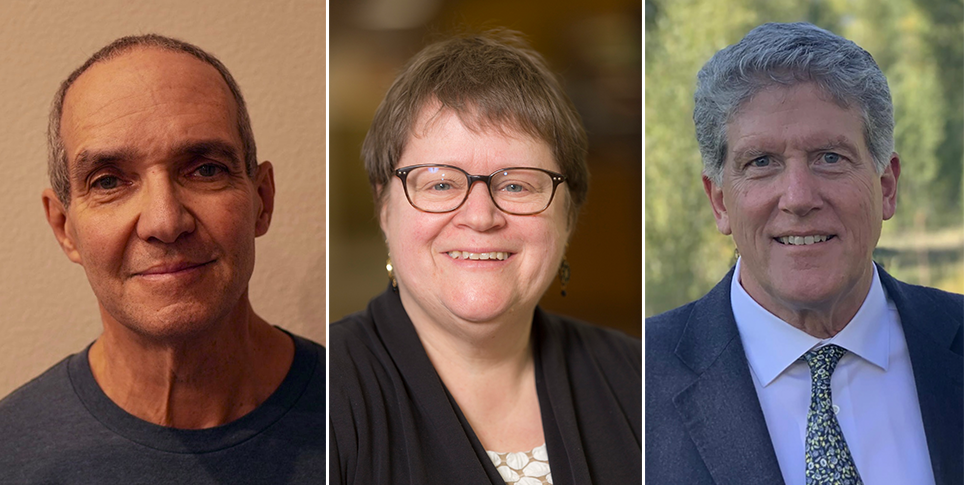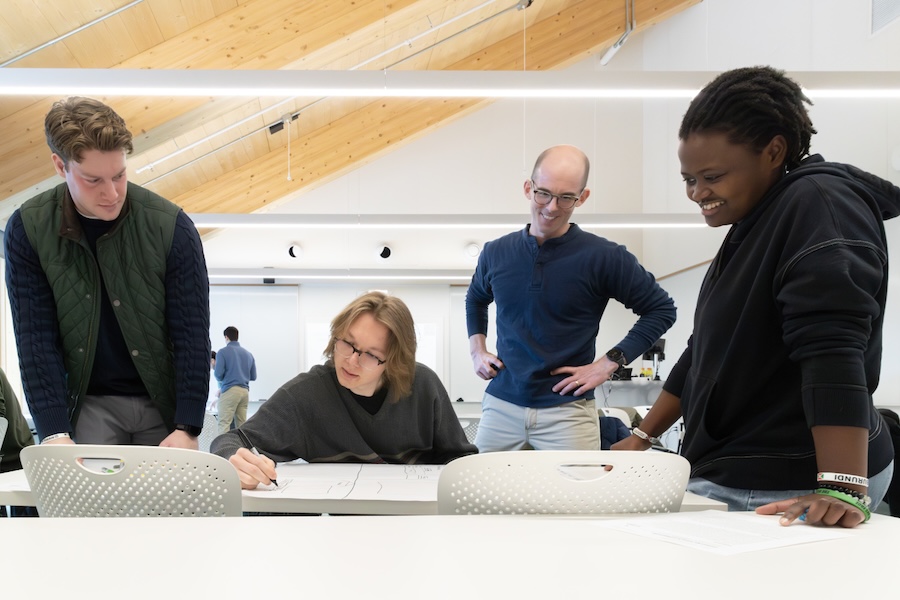Micaela Simeone ’22 and Kelsey Freeman ’16 Harness Tech for the Common Good
By Rebecca GoldfineThe Bowdoin alumnae have earned a scholarship to apply their technology and policy skills to the public sector.
Micaela Simeone ’22 and Kelsey Freeman ’16 have joined this year’s NobleReach Scholars, a cohort of twenty-eight cybersecurity specialists, engineers, computer scientists, and policy experts selected from more than 1,200 applicants nationwide. Now in its second year, the NobleReach program places early-career professionals in government agencies and mission-driven businesses to apply innovation to solving social problems.
The particular projects of Simeone and Freeman—one is focused on housing in Seattle, the other on renewable energy and tribal sovereignty in California—show how technology, if administered responsibly, can bolster equity, improve people's lives, and advance community priorities.

Public-Interest Tech
At Bowdoin, Simeone majored in English and digital and computational studies (DCS) before earning a master’s degree in applied ethics and policy from Duke University in 2023. When she launched her job search, she sought positions in “the world of responsible technology or public-interest tech.”
The NobleReach program appealed to her because of its mission to insert skilled tech workers in “places where innovation might be difficult, especially in some governmental agencies, where there may be entrenched ways of doing things and/or small budgets,” she said.
In Seattle, Simeone is working both with the city’s office of innovation and performance and the department of construction and inspections to deploy AI to streamline the permitting process for home builders and homeowners. Her role also involves stakeholder engagement to promote equity in city processes aimed at easing its housing shortage.
Simeone’s interest in AI dates to her sophomore year at Bowdoin with the appearance of GPT-3, a predecessor of ChatGPT. “I knew this was going to shift how we interact with the world and the future of work,” she said. “It felt monumental to me. I wanted to be part of the movement of people working to get it right, to make sure that AI is beneficial for the biggest number of people possible.”
In her Seattle role, Simeone is drawing on her past experiences working on digital equity in rural Maine. As a Bowdoin student, she researched the issue for her DCS major, and she also led an Alternative Spring Break trip, through the McKeen Center, that explored digital equity and literacy in rural communities. As a graduate student, she continued researching broadband access in the state, publishing a paper on the subject in Maine Policy Review.
“This work took me across Maine to interview people,” she said. “What always stands out to me about meeting people who were trying to bring broadband to rural communities is how much meaning can come from getting people together in a room to talk about issues and pain points, and how technology can be part of the solution. And I think the same is true for AI.”

Energy Sovereignty
Kelsey Freeman’s path to the NobleReach scholarship has been shaped by her long-standing commitment to Indigenous rights and immigration policy.
After graduating from Bowdoin with a major in government and legal studies and a minor in Spanish, she won a Fulbright fellowship to teach English in Mexico. While there, she pursued research on Central American migrants, which became the basis of her 2020 book No Option but North: The Migrant World and the Perilous Path Across the Border. The book won the 2021 Colorado Book Award and was a finalist for the Oregon Book Award.
Her interest in human rights began while she was a high school student in Colorado, when she worked on a Native reservation in South Dakota, and continued at Bowdoin, where she focused her studies and extracurricular activities on how public and educational institutions can better support tribes. She led Alternative Spring Break trips to the Passamaquoddy reservation for the McKeen Center, researched barriers to college access for Native students, and completed an honors project on Indigenous social movements.
Freeman has worked for Central Oregon Community College, where she developed an access program for Native youth, and for the Nevada Clean Energy Fund as its community engagement fellow. For the past three years she’s been a Knight-Hennessy Scholar at Stanford University, where she earned two master’s degrees in international policy and in environment and resources.
Through a Shultz Energy Fellowship from Stanford, Freeman joined the California Energy Commission this summer. Now, as a NobleReach Scholar, she’s extending her role in the commission’s tribal affairs program, convening meetings with Native communities across the state. The goal of this outreach is to co-develop a series of policies that range from best practices for writing tribal energy grants to protecting tribal energy sovereignty.
The initiative’s overarching aim is to give California’s 109 federally recognized tribes, and sixty-plus non-federally recognized tribes, a strong say in how they benefit from the state’s major investments in its energy transition. “I’m interested in clean energy not only as a tool to fight climate change, but also as a pathway for workforce development, energy resilience, and ultimately, in the case of tribes, for self-determination,” Freeman said.



